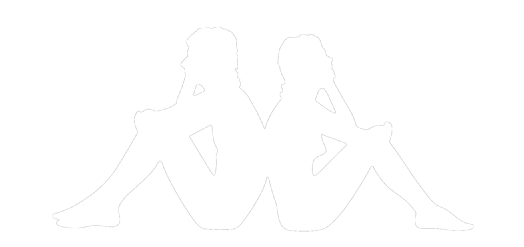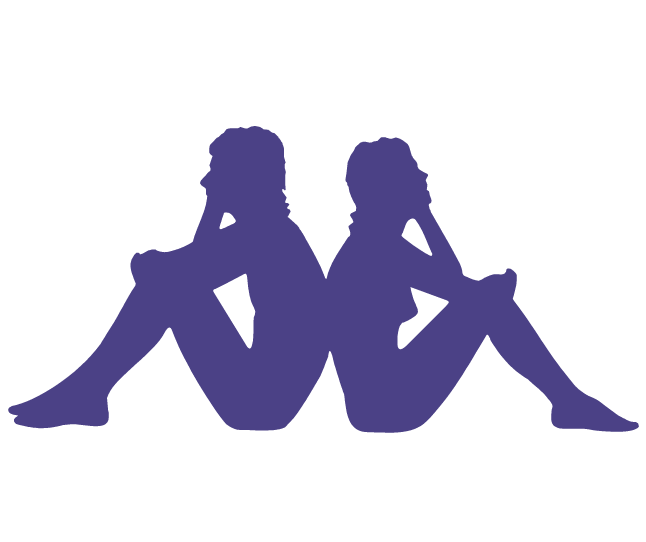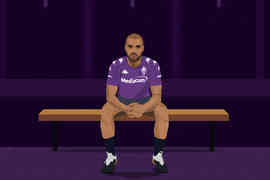
ONE ON ONE: SOFYAN AMRABAT
We sat down with Sofyan Amrabat to speak about his life, his career, his upbringing and his future.
Moroccan blood, Dutch upbringing, Italy in his destiny. The here and now? Fiorentina. One, constant aim – to make it in football. Sofyan Amrabat has followed in the footsteps of his brother Nordin to become a professional footballer – and at 24 he can already say that he has played Champions League football and gone to a World Cup. But this is just the beginning. With his mind focused solely on football, Amrabat looks likely to compete at the top level for quite some time.
“Like every child who likes something, since I was young I was every day with the football. My dream was always to be a footballer. It wasn’t easy in the Utrecht academy. I went to school every day, and had really long days. The whole day was busy. And it’s not easy for a child. I saw a lot of players who were done with it, who stopped because they wanted to enjoy spending time with friends. I left home at 8 in the morning to go to school by bicycle, and would return at 8:30 in the evening. Every day I had a one-hour journey there, and a one-hour journey back. At 8:30 my classes would start, until 2. Then back on my bike towards the station to get the bus, then the train to Utrecht. It wasn’t easy – they were heavy days. But I never thought it was too difficult. I wanted to reach my dream. I knew, even as a child, that it’s really important to work for it. My parents always told me that if I wanted to achieve something in my life I had to work for it. This could apply to school, or to football. Then I also had the example from my brother, who is also a professional footballer. That was also important for me. My parents always used to say: ‘School is the most important thing.’ You never know if you’re going to become a football player. I had maybe 200 team-mates in the Utrecht academy – the team changed every year.
Out of those 200 players, maybe two or three – maximum four – made it into the first team.”
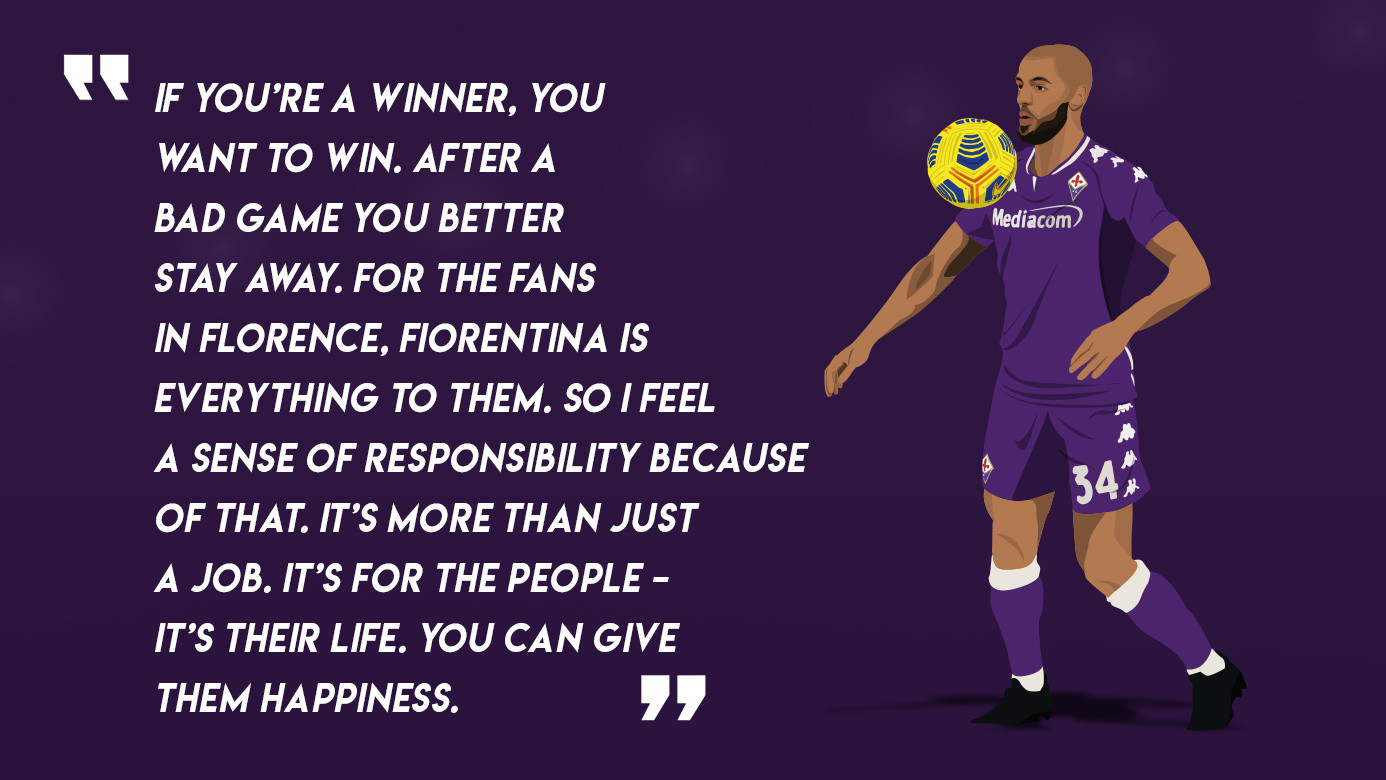
MAKING SACRIFICES
“Everybody likes the good life. It’s difficult, but that’s the mentality you need. You have to know why you’re doing it. My only interest is football – I work every day for myself, for my career, to help my team, to help the club. Football for me is a way of life. It’s not just a matter of training and that’s it. I return home, I recover, I eat properly. Every day you’re asking the maximum from your body, so you have to prepare your body for that and recover. For me, it’s easy to make sacrifices because I know what I want. I’m being honest. When I had the two-week winter break as a kid, without school or football, after a few days I wanted to start the normal life again. It was nice to see friends, go out and play for a few days, but in the end I liked the routine. For me it’s always been really important to make my parents proud, to make my family proud – that’s an extra motivation. I was working for something – to finish school and succeed in football, reach the first team and play at the stadium.
Every day I caught the bus home from in front of the stadium, and I knew what I was working for. I was tired, but I knew why I was doing it.”
FRIENDSHIP IN FOOTBALL
“When I was young I didn’t have a lot of friends – I was always busy. I simply didn’t have the time. I went to school, then to training. Of course, I had my team-mates, some friends from my city who I’d known since I was young. But later on, it changed – they had their business, I had my business. So you grow out of some groups of friends. I’ve always had a small circle of friends. I have some friends and family and they are important for me and come visit me. I haven’t changed much – I’m the same in my way of thinking, in my mentality. Of course, as you grow older you learn more. Sometimes you can see people getting closer to others for a reason – but you can count your real friends on one hand. I haven’t changed my friends, because I know people think there are people who wouldn’t come to me if I wasn’t a football player. With the people you’ve known since you were young, it’s different. The same with girls – sometimes you don’t know if they would give you the same attention if you weren’t a football player.
Some players make friends easily, but you don’t know if they’re real friends.”
DEALING WITH PRESSURE
“I like the pressure. My agent always tells me: ‘I’m not worried for you in big games.’ I like to play in full stadiums – I like it when the fans are whistling me. That’s what I want – that’s why you do it.
Right now, with empty stadiums, I hate it. I don’t feel the energy.”
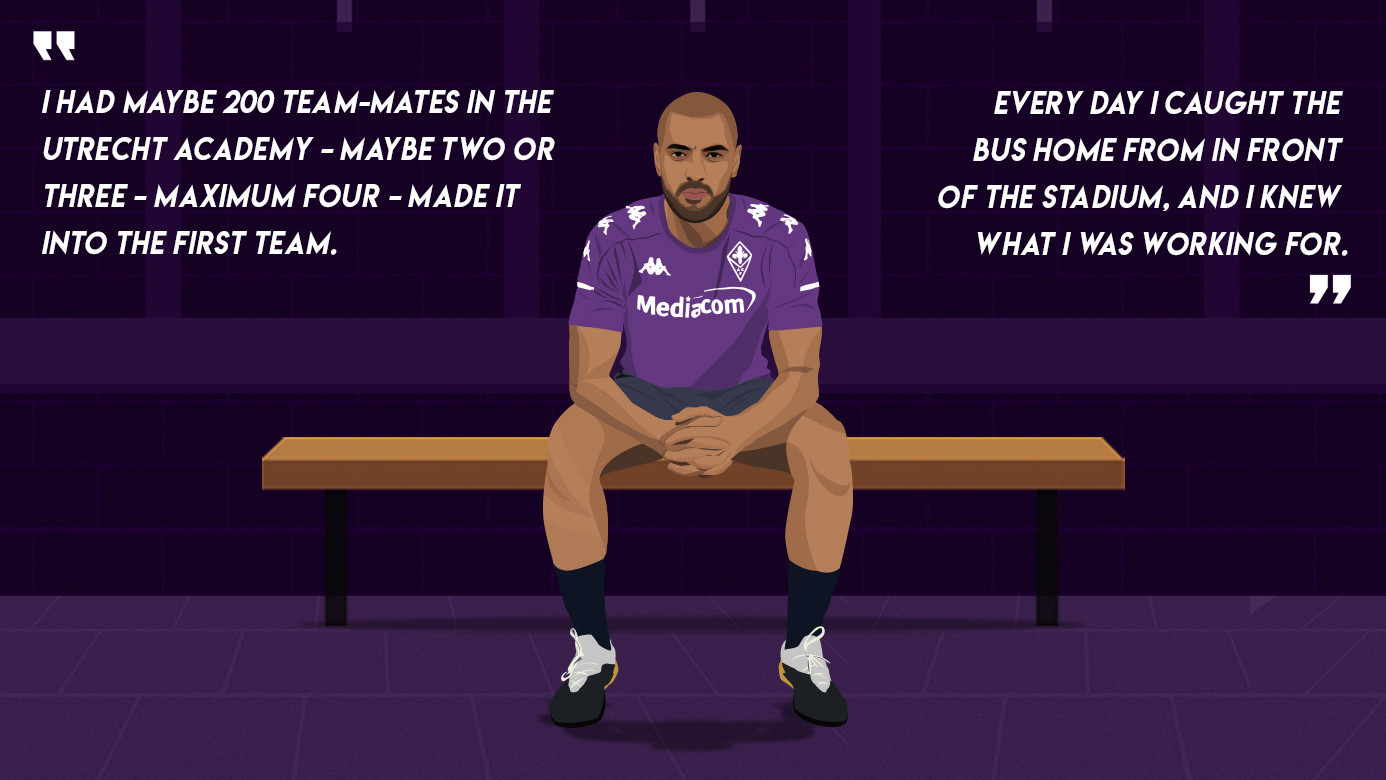
EMPTY STADIUMS
“Right now there are many people in many sectors who aren’t working. You always have to think about the people who have it difficult. For us it’s different playing in empty stadiums. I think if you watch football in the whole world right now, everywhere the level has gone down a bit - the intensity of the game, for example. Perhaps we make more mistakes. For example when you pass it back to the goalkeeper or to a man who is marked, the fans immediately make noises, shout ‘uomo’ - right now you hear nothing. You stay more focused, you concede less. After conceding a goal or two the fans would kill you. It’s a mental thing. It shouldn’t happen, but it sometimes does. It’s not like a training because we’re still playing for points, but with the full stadium it’s different. It’s a feeling you get automatically, even when you’re watching the game on the tv, without the fans. Football is for the fans.
We understand it’s not possible now, but football without fans is not the same.”
MOROCCAN ROOTS
“I’m from Morocco, my parents are from Morocco, my grandparents are from Morocco – I have Moroccan blood. Whenever I go to Morocco, the feeling inside – I can’t describe it with words – is that I’m home. Holland is also my home. I have a special relationship with Holland too.
But Morocco is particularly special.”
AFRICA
“Africa is another world. When we get the chance to travel to play away games, we see another world. The facilities are not like in Europe – it’s poor and the stadiums are old, but every time it’s a wonderful adventure. Once we played in Comoros, a tiny island. We played there, on a synthetic pitch, and it was like playing in the jungle – the stadium was surrounded by trees. You don’t want to play on that kind of pitch every week, but seeing it is a really nice experience. You also learn a lot, because African football is different to European football – it’s a fight. Of course, it’s a battle in Europe too, because everyone wants to win, but there it’s all running, tackling… all sorts of things. It really is nice. The people in Africa don’t have a lot – they don’t have normal houses by our standards – but they’re always smiling, always happy. Happiness is not in money, big houses or big cars. These people have almost nothing. They’re happy if they can eat at the end of the day.
But when you see them, you see they are happy.”
RELATIONSHIP WITH HOLLAND
“I have a great relationship with Holland. I was born there and spent almost my whole life there, from when I was born until I was 22 and went to Belgium and later to Italy. I spent my whole life there. Of course I have Moroccan blood – I feel that I’m a Moroccan.
But I was born there, so Holland is also a really important part of my life.”
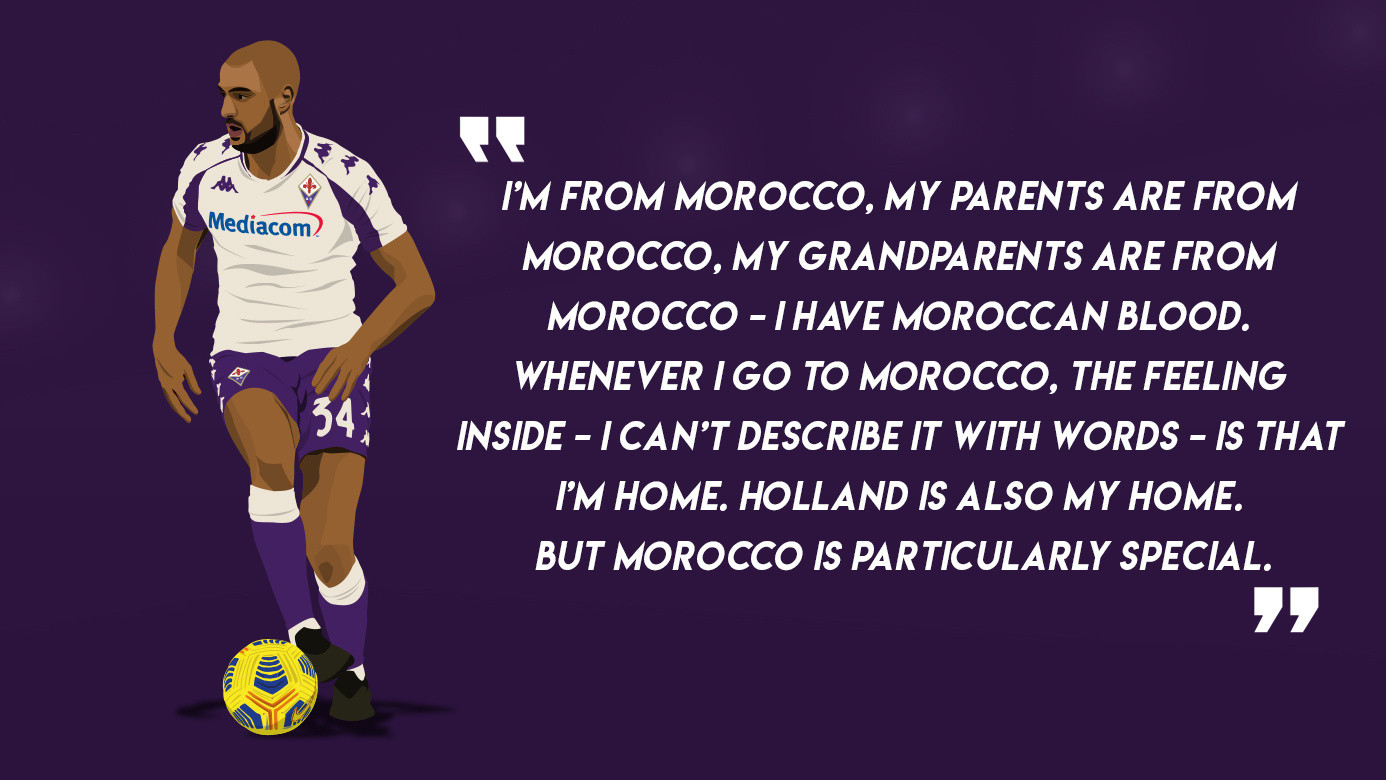
RELATIONSHIP WITH EUROPE
“Europe is also really important for me. I grew up in Holland, went to school, had a good education. Holland and Belgium are similar, and Italy is different. I heard plenty of nice things about Italy before I moved here. I once came here before, in Naples, when I played at Napoli with Feyenoord – I also scored against them, in the Champions League. And it was the first time I’d seen Italy, Naples, the sea, the food. I moved to Verona, then Florence – Italy is a fantastic country. I understand why players don’t want to leave Italy. The life, the people and the football are fantastic. I don’t want to compare countries, but there are similarities with Morocco.
Italy felt like home from the first day for me.”
PLAYING FOR MOROCCO
“In the beginning I was playing at youth level for Holland – the first time I played was for the U15s, then the U16s. Later on, Morocco qualified for the U17 World Cup and they wanted to go with a strong team. So the Morocco youth coordinator, Pim Verbeek – a Dutchman, who has passed away now – came to Holland to speak to me and my father. ‘We want you – we go to the U17 World Cup in Dubai,’ he said. It was special – I couldn’t say no to that. So I went to play in the U17 World Cup with Morocco, and I’ve played for Morocco ever since. I played for the U20s and U23s, then one time they called me up for a senior friendly against Uruguay – the coach was Badou Zaki, and I was 18 years old. I didn’t play, but it was special – my first time in the senior national team.
I started to grow and play for the Utrecht first team, and I was doing well. At 20 I made my debut for Morocco. I was injured, but the coach [Herve Renard] still called me up. It wasn’t an official game, but a friendly, so I could still change. Then it went a little bit quiet, for a while I didn’t play for either Morocco or Holland. Then I moved to Feyenoord and played had some really good performances with Feyenoord in the Champions League, so in Holland the debate kicked off about me. Dick Advocaat and Ruud Gullit called me and wanted to speak with me – why would I say no? Advocaat is a great coach – I respect him – so I went to meet them with my agent. It was a really good conversation. He’s a fantastic guy – we spoke for two hours and he told me he wanted me in the Dutch national team. I had made my Morocco debut, though not an official game, but still a debut. I started to think about it have maybe have some doubts, because I grew up in Holland.
The head of the Moroccan FA heard this and said: ‘Can you please come to Morocco – I want to talk to you and your parents.” I said: ‘Well why not?’ So I went. I remember I went with my parents to Morocco for three days and he organised everything perfectly. We spoke with him and he told me I was doing well, but that I am Moroccan, and they wanted me to stay with them. Then we went to watch a World Cup qualifier – Morocco played against Gabon and won 3-0, in Casablanca. It was totally full, maybe 60,000 or 70,000 people. The atmosphere there that day was unbelievable – even now I get goosebumps. So, when I saw the game, and all those people, deep in my heart I knew I couldn’t change – I knew I couldn’t play for another country. Perhaps it was a smart move from the boss of the Moroccan FA.
A week later I called Dick Advocaat to thank him for the interest and tell him that I wanted him to know before anyone else that I would stay with Morocco. And he replied: ‘That’s a shame. But I respect your choice.’ It was difficult but at the end of the day I’d made my choice.
A lot of people tell me I would have more chance of winning something with Holland. But you never know. With Morocco I went to a World Cup, in which Holland didn’t participate. Holland have a really strong team again now, with a lot of young players, so they’re starting to get back to their level once again. But that’s football. Especially at international level – sometimes you have a strong group, sometimes less so. Now Holland are strong again. They will be a top side.
But it’s also interesting to look at our team in Morocco now. We’re growing and everything is well organised. The facilities, for example – they’ve built an FA training centre and it’s unbelievable. Something like 10 to 15 pitches, indoors, outdoors. There’s everything you want, everything you need. We sleep there – everything is perfect. Morocco is growing, we have a really good coach and we have a lot of potential, so all the ingredients are there to achieve something.
When we reached the World Cup after 20 years, it was an unbelievable feeling. Moroccans were partying in Holland, in France, in Belgium – everywhere. People in Morocco were crying. You realise how important it is for the people. Even those who normally don’t care about football watched the World Cup. The World Cup in 2018 was one of the best moments of my life.
We’ve already qualified for the African Cup of Nations and soon we start the World Cup qualifiers – we have a lot of potential and we have to show it on the pitch.
I think Morocco can achieve a lot in football.”
DUTCH AND ITALIAN FOOTBALL
“Since I was ten I played in the Utrecht academy, so I learned a lot there. I think the Dutch school is really good when you are young. There’s a lot of work on technique, a lot of work with the ball. All teams in Holland can play good possession football, players are technical and good on the ball, it’s an attractive brand of football. Sometimes it’s too naive, but it’s changing. In the whole world football is changing. Getting results is key.
Holland and Belgium are similar, and I also learned a lot in Italy, in a short period of time. There’s competition, there are a lot of big players and big clubs. It’s more physical than the Dutch game. It’s very tactical, you learn a lot on that aspect. You have to be smart. The focus in Holland is more on enjoying good football. Clubs, coaches, players and fans sometimes will be happy with paying well and losing 1-0. Of course, though, everybody wants to win. In Italy the most important thing is the result. If you play badly, but you win, you are the best. No matter how, but you have to win. The way you play is also important, but the result is the main thing. I think this is the biggest difference between football in Italy and Holland. Personally I like to play good football, I like to watch good football, but I don’t want to play well and lose.
For me if we play badly every week and win every week, we’re the best.”
THE FUTURE
“I don’t to look too far into the future. You can work for today, for tomorrow, have plenty of ideas and plans, but everything can change every day. At the moment I’m focused on Fiorentina. I focus on myself, on growing, on becoming a better player, on helping the club and the national team. Maybe Fiorentina in two years is the best club in Italy. It’s difficult, but you never know in football. Look at the current season and how many things have changed from the last. I’m very ambitious. I do my best for Fiorentina. If we do well, things can change quickly. I am Muslim and I believe everything is written. You cannot sleep at home all day – you have to work, give your everything.
I believe everything is written, but you have to work for it.”
FOOTBALL IS MORE THAN A JOB
“I’m sick of the current situation. The club wanted me a lot and this is not the position we want to be in. Sometimes people think footballers don’t care, or sometimes you maybe have footballers who don’t care. But I’m not like that. I feel responsibility for the club, the city of Florence, the Fiorentina fans. It’s a big responsibility. For me it’s not: ‘OK I played, we win or we lose. I go home, I don’t care.’ I take it home with me. My parents see it in my face – after a bad game you better stay away. If you’re a winner, you want to win. I want to win every week. And if we lose, I feel bad. For the fans in Florence, Fiorentina is everything to them. So I feel a sense of responsibility because of that.
It’s more than just a job. It’s for the people – it’s their life. You can give them happiness.”
Interview by Vieri Capretta

